Late blight is the nemesis of potato farmers worldwide, notorious for causing the Irish potato famine and regularly wreaking havoc on potato crops globally. This disease presents significant challenges not only for farmers but also for food producers. When late blight strikes, its impact reverberates from the seed tuber production fields to the market shelves. The consequences are even more profound in regions like Kenya, where potatoes are a staple. However, Hybrid True Potato Seeds (HTPS) hold promise for these farmers. HTPS can significantly minimize the impact of late blight, safeguarding potato harvests against this devastating disease and protecting farmers’ livelihoods.
Solynta and partners have been providing farmers across Africa with hybrid potato seeds for several years. Our work extends across 14 African countries, with notable testing in Kenya, where the potato is the second most consumed staple after maize. Kenyan farmers are increasingly testing hybrid true potato seeds to tackle blight, reduce fungicide use, and stabilize yields.
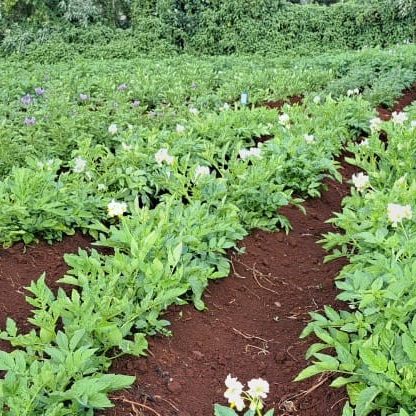
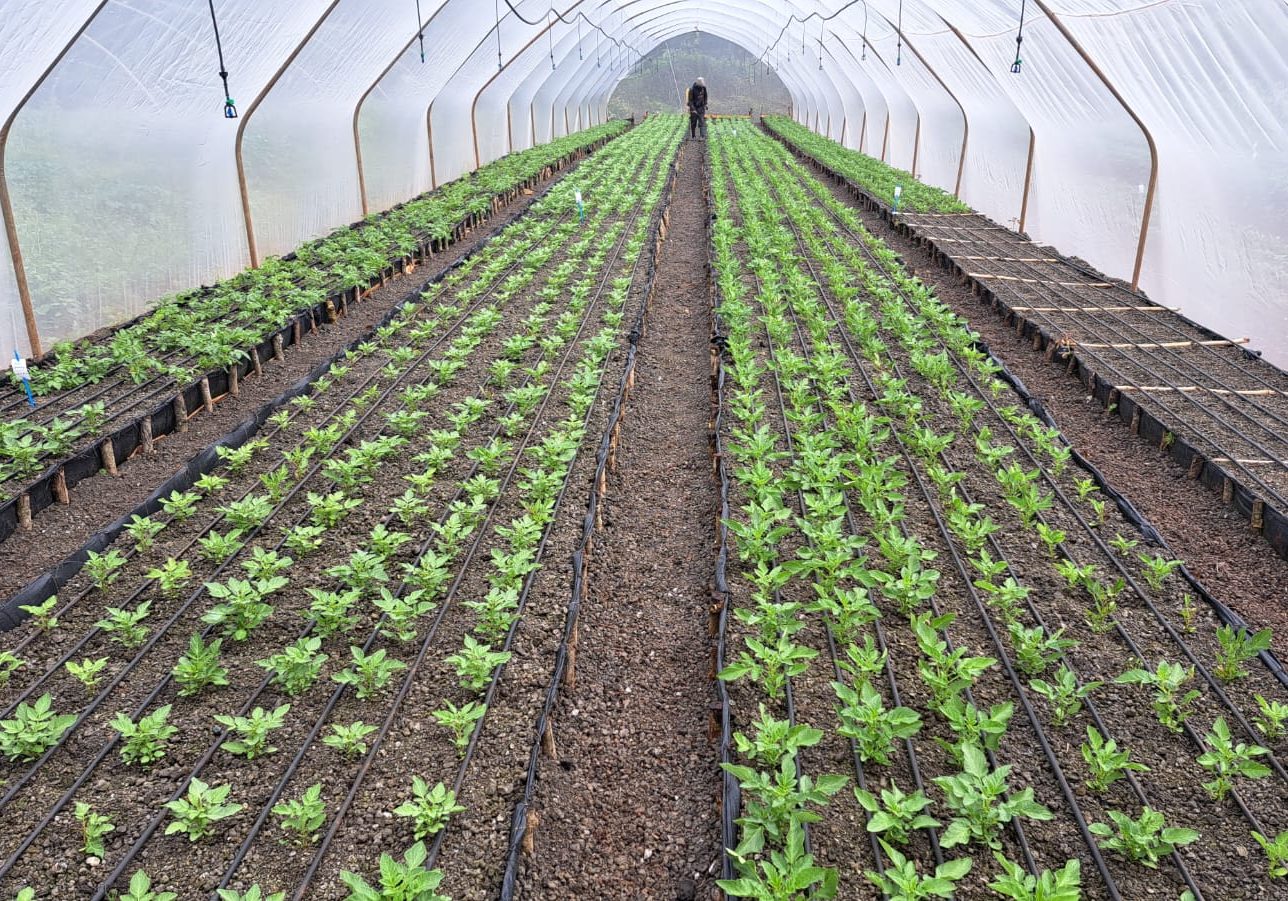
Several of our Kenyan partners, such as smallholder farms and co-ops, have successfully harvested their initial potato crop and are now gearing up for the subsequent harvest. The potato yields they've achieved are robust and remarkable, surpassing the typical yield for this season. For non-Solynta seed farmers, the average yield was significantly lower, primarily due to late blight, with Solynta's potatoes proving to be in good health. The best news of all: Solynta’s potatoes are healthy, meaning more Kenyan growers can depend on our seeds for sustainable and reliable results.
One of our partners, Mlango Farm, is leading the way and has reported strong results on their fields’ with our latest hybrids containing resistance to late blight.
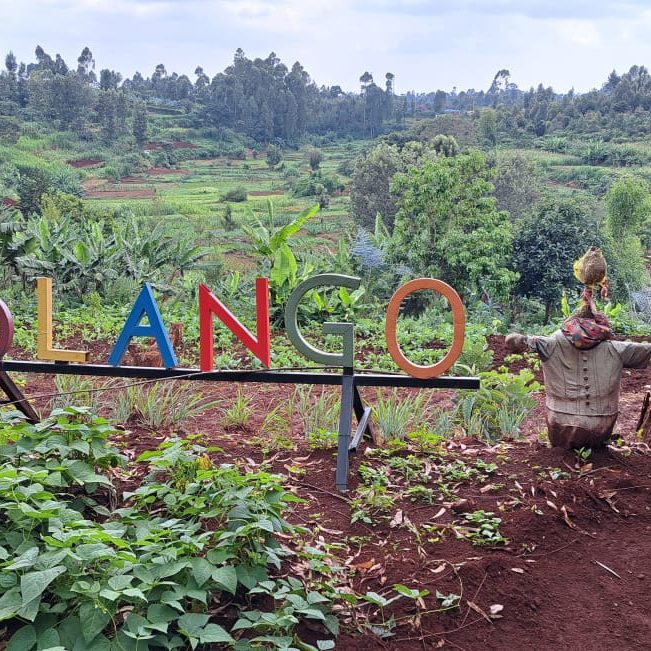
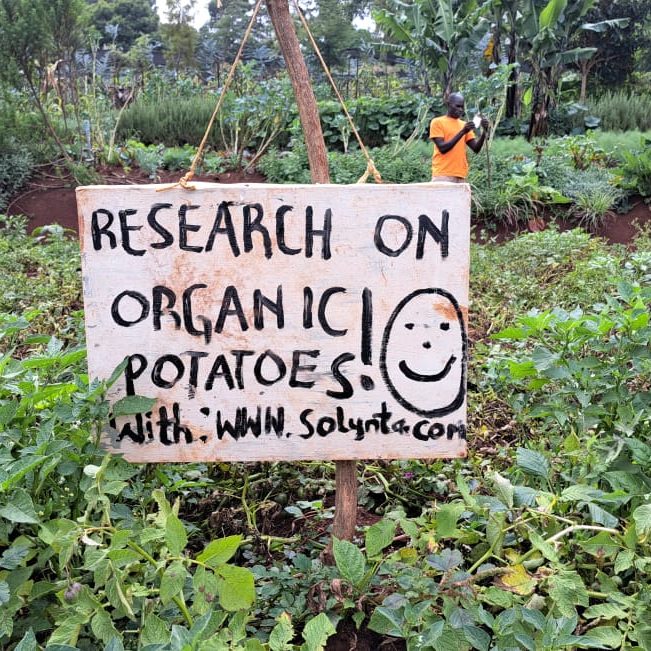
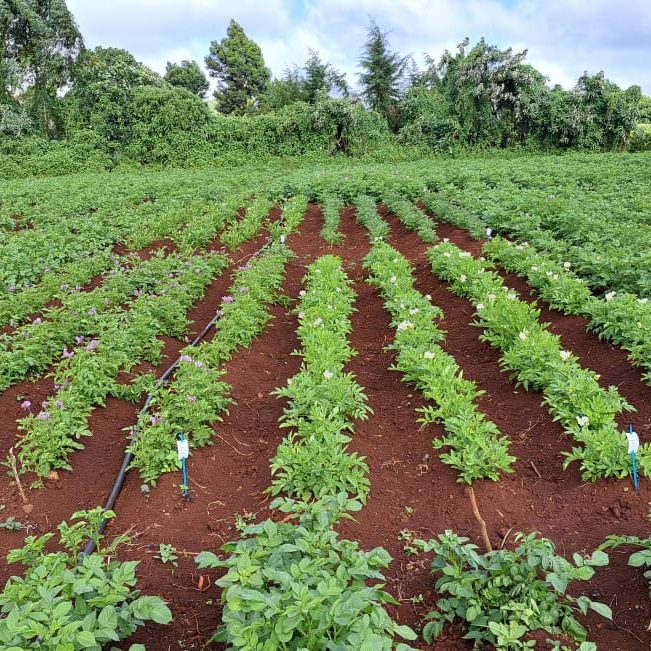
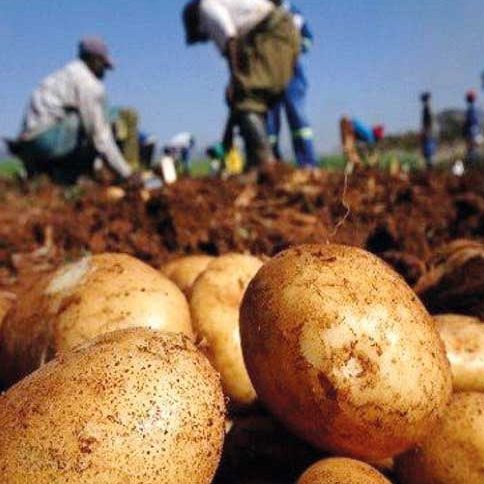
How Kenyan Potatoes Escape Late Blight
We previously shared the story of Mlango Farm, one of the largest organic farms in Kenya, and how their first crop of hybrid potatoes grew successfully and without fungicide. We returned to Kenya to get an update on their latest harvest and to see how the organic, hybrid and chemical-free potatoes did against late blight and other pests.
Returning to Mlango Farm, the impact of Solynta's hybrid potato seeds is evident. The farm witnessed another successful harvest of healthy, organic potatoes without using pesticides. This breakthrough offers organic smallholder farmers like those at Mlango Farm a lucrative opportunity to expand their yield and product range, catering to local families with fresh, nutritious potatoes. The success at Mlango Farm exemplifies the potential of hybrid breeding in enhancing crop resilience, especially against late blight, and demonstrates a significant step forward in sustainable agriculture in Kenya.
The Stakeholders Behind Kenya’s Agriculture Innovations
The progress in the fight against blight in Kenya extends beyond Solynta’s hybrid true potato seeds. The combined efforts of seed producers, farmers, associations, and regulators are vital in driving agricultural innovation. This innovation addresses the immediate needs of Kenyan farmers, ensuring practical benefits both now and in the future. Collaborating with numerous local growers is crucial in showcasing the advantages of hybrid breeding and true potato seeds. By collectively ‘re-designing’ the growing system, we enable growers to have clean starting material for each planting season consistently. Such clean starting material is crucial for successful crop production. At enterprises like Mlango Farm, these seedlings are used to cultivate hybrid potatoes. The resilience of these hybrids against late blight represents a significant innovation. The thriving crops at Mlango Farm serve as a testament to the value of adopting hybrid varieties, inspiring other farmers to embrace these robust crops with confidence and optimism.
Outside the business sector, the Kenyan Potato Council, the Kenya Plant Health Inspectorate Service (KEPHIS), and industry organizations like, the Africa Seed Trade Association, continue to join workshops and invite open dialogue on the future of hybrid crops. We are honored to support these groups and share our experiences battling late blight alongside African farmers.
Future of Expanding Hybrid Crops in Kenya
Solynta is expanding partnerships in Kenya, encompassing potato growers, seed tuber producers, off-takers, and processors, among other key stakeholders. Our commitment to the Kenyan agricultural sector is stronger than ever, and we look forward to expanding access to hybrid potato seeds for every potato farmer - in Kenya and beyond.
If you would like to start growing hybrid potatoes from true seed in your region, please contact our sales department.

